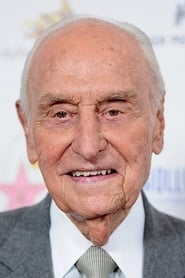
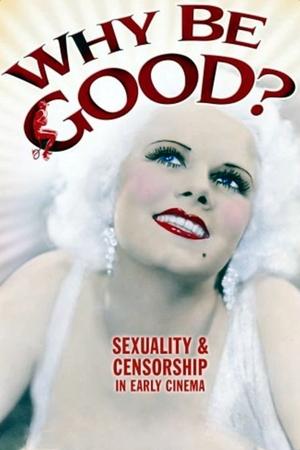
Why Be Good?: Sexuality & Censorship in Early Cinema(2007)
Before the G, PG and R ratings system there was the Production Code, and before that there was, well, nothing. This eye-opening documentary examines the rampant sexuality of early Hollywood through movie clips and reminiscences by stars of the era. Gloria Swanson, Mary Pickford, Marlene Dietrich and others relate tales of the artistic freedom that led to the draconian Production Code, which governed content from 1934 to 1968. Diane Lane narrates.

Movie: Why Be Good?: Sexuality & Censorship in Early Cinema
Top 10 Billed Cast
Self
Self
Self
Self
Self
Self

Why Be Good?: Sexuality & Censorship in Early Cinema
HomePage
Overview
Before the G, PG and R ratings system there was the Production Code, and before that there was, well, nothing. This eye-opening documentary examines the rampant sexuality of early Hollywood through movie clips and reminiscences by stars of the era. Gloria Swanson, Mary Pickford, Marlene Dietrich and others relate tales of the artistic freedom that led to the draconian Production Code, which governed content from 1934 to 1968. Diane Lane narrates.
Release Date
2007-05-23
Average
4.9
Rating:
2.5 startsTagline
Genres
Languages:
EnglishKeywords
Recommendations Movies
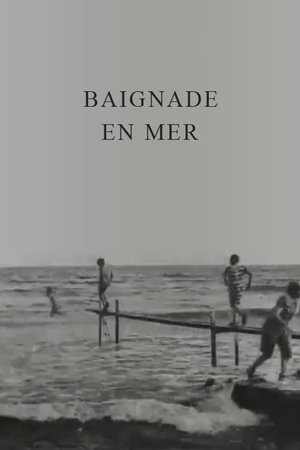 5.5
5.5Swimming in the Sea(fr)
Several little boys run along a pier, then jump into the ocean.
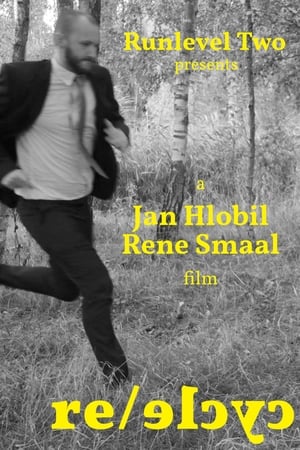 7.7
7.7Re/cycle(en)
With input from actor and writer Jan Hlobil, director and cinematographer Rene Smaal presents a film in the true surrealist tradition, in the sense that only 'found' elements were used, and that it defies interpretation based on ordinary cause-and-effect time sequence.
 5.7
5.7The Perfect Guy(en)
With a fulfilling career and a loving relationship, lobbyist Leah Vaughn seems to have it all. Things come crashing down when Dave, her long-term boyfriend, disagrees with her future plans for marriage and a family. The resulting painful breakup leaves Leah heartbroken, until she meets the charming and handsome Carter Duncan. Soon, the budding romance turns dangerous as Carter reveals his volatile nature, forcing Leah to break up with the man she thought was Mr. Right. She soon realizes that Carter doesn't want to let her go.
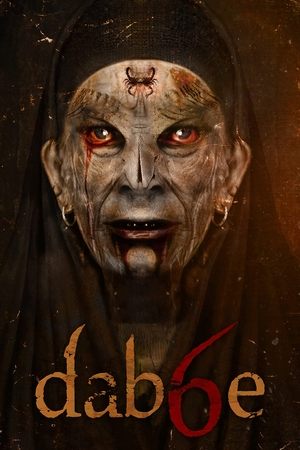 6.3
6.3D@bbe 6: The Return(tr)
A cardiologist tries to pinpoint the cause of her mother's sudden death, while her sister, a witness, claims malevolent demons are at play.
 6.7
6.7Brown Sugar(en)
Sidney and Dre can attribute their lifelong friendship and the launch of their careers to one single childhood instant... witnessing the birth of hip-hop on a New York street corner. Now some 15 years later, she is a revered music critic at a national magazine and he is a successful, though unfulfilled, hip-hop record company executive. Both come to realize that their true life passions will only be fulfilled by remembering what they learned that day on the corner.
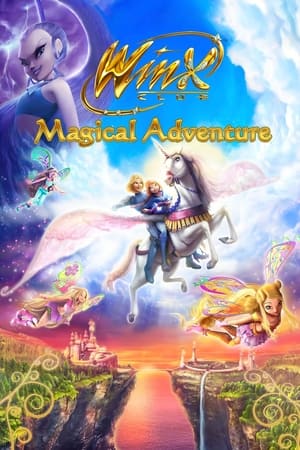 7.3
7.3Winx Club - Magic Adventure(it)
School for fairies Alfea celebrates the inauguration of the new school year when the party is interrupted by Icy, Darcy and Stormy, the perfidious Trix. The Winx without Bloom, are forced to remedy the confusion created by the witches who, having ruined the party, steal a powerful and mysterious object. Meanwhile, Bloom is on Domino, which is experiencing the best moments of his new life as a princess. He finally found his parents and Sky asks her to marry him. But not all gold that glitters, the three Witches are Ancestors in fact come back to haunt Stella, Aisha, Tecna, Musa, Flora and Bloom. Moreover, Erendor, Sky's father, forbids his son to marry the princess of Domino. A dark secret lies in the realm of Eraklyon and now that Sky, the legitimate ruler of the kingdom, as known.
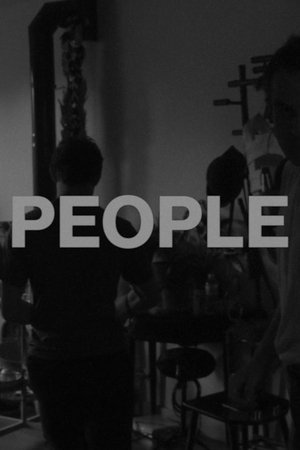 7.8
7.8People(fr)
People is a film shot behind closed doors in a workshop/house on the outskirts of Paris and features a dozen characters. It is based on an interweaving of scenes of moaning and sex. The house is the characters' common space, but the question of ownership is distended, they don't all inhabit it in the same way. As the sequences progress, we don't find the same characters but the same interdependent relationships. Through the alternation between lament and sexuality, physical and verbal communication are put on the same level. The film then deconstructs, through its repetitive structure, our relational myths.
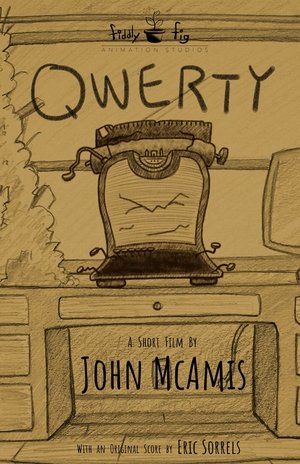 5.9
5.9Qwerty(en)
A grieving young inventor finds solace in repairing an antique typewriter.
Forest(en)
Short film built from photographs, sped up like a traditional stop motion and is meant to be an evocation of the English Eerie and Folk Horror.
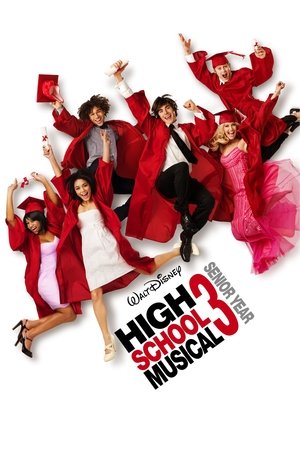 6.5
6.5High School Musical 3: Senior Year(en)
As seniors in high school, Troy and Gabriella struggle with the idea of being separated from one another as college approaches. Along with the rest of the Wildcats, they stage a spring musical to address their experiences, hopes and fears about their future.
 5.9
5.9A Wish for Christmas(en)
Sara Shaw is the type of woman who prefers to sit on the sidelines at work, but when her big idea for a Christmas initiative is stolen, she makes a wish to Santa that she'll finally have the courage to stand up for herself. Santa grants her wish, but only gives her 48 hours. As the clock ticks, Sara will discover how to channel the Christmas magic and speak her mind all on her own.
 8.3
8.3People(en)
The Red Mountain Tribe hangs out in my backyard. "Lipton's lovely home movie PEOPLE, in its affection for valuable inconsequential gestures, indicates in the course of its three minutes why there has to be a continuing alternative to the commercial cinema." – Roger Greenspun, The New York Times
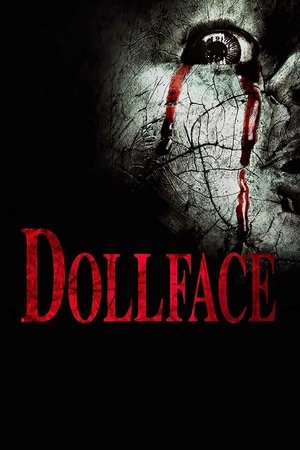 5.7
5.7Dorchester's Revenge: The Return of Crinoline Head(en)
A group of college students researching Dorchester Stewart, better known as the infamous killer Crinoline Head, return to the scene of the horrific murders that happened in 1996.
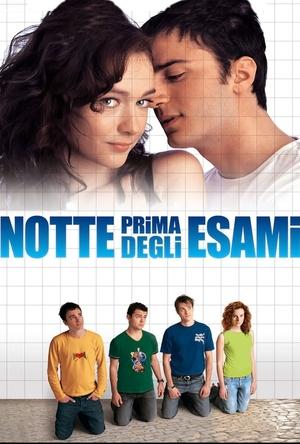 6.4
6.4The Night Before the Exams(it)
Rome, 1989. On his last day of high school, Luca gets in trouble when he takes it all out on hated literature teacher Martinelli, only to discover he's going to be heading the examination board for his finals. During a summer of fruitless study, he falls in love with a girl he met once at a party, unaware that she's Martinelli's daughter. The latter, strangely enough, has just offered Luca to prepare with him...
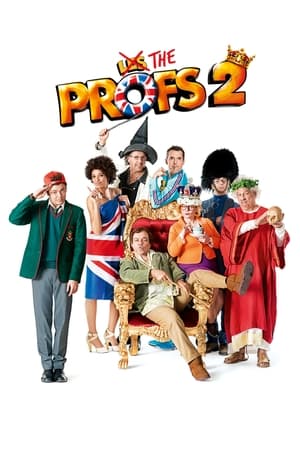 5.3
5.3Serial Teachers 2(fr)
The worst teachers of France landed in England for an ultra-secret mission. With Boulard, the King of the Dunces, they are parachuted in the best school of the country, and they will apply their famous methods on the future of the nation.
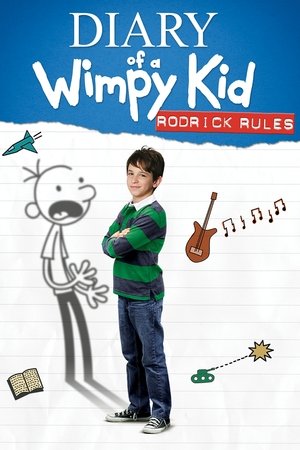 6.7
6.7Diary of a Wimpy Kid: Rodrick Rules(en)
Wimpy Greg Heffley, now in seventh grade, thinks he has it all together. He has mastered middle school and gotten rid of the Cheese Touch. However, Greg's older brother, Rodrick, is itching to cut him down to size. He gets the perfect opportunity when their mother tries to force the boys to bond. Rodrick may be Greg's chief tormentor, but he feels his constant pranks are just what his little brother needs to prepare him for life's hard knocks.
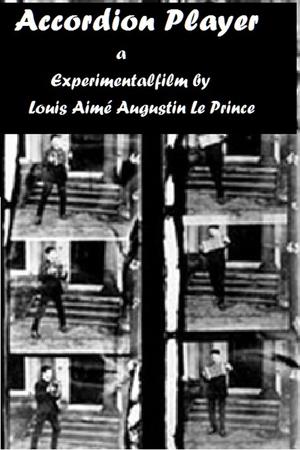 4.9
4.9Accordion Player(xx)
The last remaining film of Le Prince's LPCCP Type-1 MkII single-lens camera is a sequence of frames of his son, Adolphe Le Prince, playing a diatonic button accordion. It was recorded on the steps of the house of Joseph Whitley, Adolphe's grandfather.
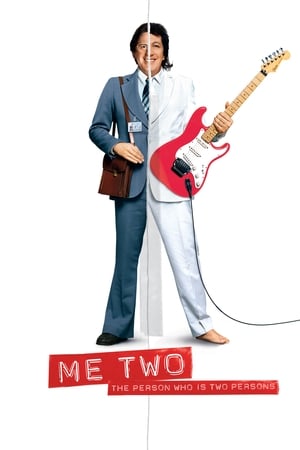 5.4
5.4Me Two(fr)
80's pop icon Gilles Gabriel is about to make a comeback in the French music scene, until he accidentally hits Ranu, a slightly nutty accountant, when out driving one day. Both are horrified to realise that Gilles died in the crash, and that his spirit now lives in Ranu's head! The kooky accountant's life soon becomes chaos!
Similar Movies
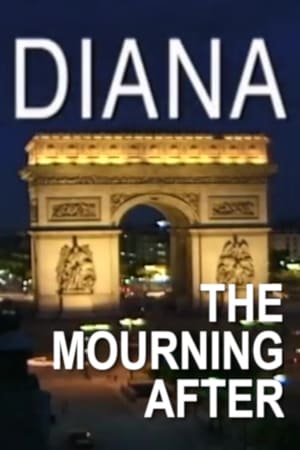 6.6
6.6Princess Diana: The Mourning After(en)
In "Diana: The Mourning After" Christopher Hitchens sets out to examine the bogusness of "a nation's grief", tries to uncover the few voices of sanity that cut against the grain of contrived hysteria. His findings suggested that the collective hordes of emotive Dianaphiles sobbing in the streets were not only encouraged but emulated by the media. In the aftermath of Diana's death a three-line whip was enforced on newspapers and on TV, selling the sainthood line wholesale. The suspicion was that journalists, like the public, greeted the death as a chance to wax emotional in print, as a change from the customary knowing cynicism, to wheel out all those portentous phrases they'd been saving up for the big occasion. Sadly, they just seemed to be showboating; the eulogies, laments and tear-soaked platitudes ringing risibly hollow.
 6.8
6.8Belarus: An Ordinary Dictatorship(fr)
It’s the last dictatorship of Europe, caught in a Soviet time-warp, where the secret police is still called the KGB and the president rules by fear. Disappearances, political assassinations, waves of repression and mass arrests are all regular occurances. But while half of Belarus moves closer to Russia, the other half is trying to resist…
 7.9
7.9CORONA.FILM - Prologue(de)
As the first part of our investigation, the CORONA.FILM prologue will delve into the science behind the pandemic. Starting at the very beginning, we shine a light on the responses. The aim is not to point the finger; our aim is to tell the whole story in all its complexity, as we believe that justice cannot prevail if only one side of the story is told.
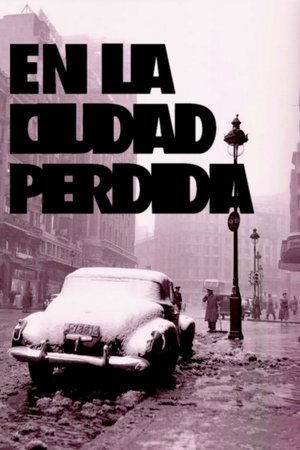 4.0
4.0In the Lost City(es)
The city of Madrid as it appears in the Spanish films of the 1950s. A small tribute to all those who filmed and portrayed Madrid despite the dictatorship, censorship and the critical situation of industry and society.
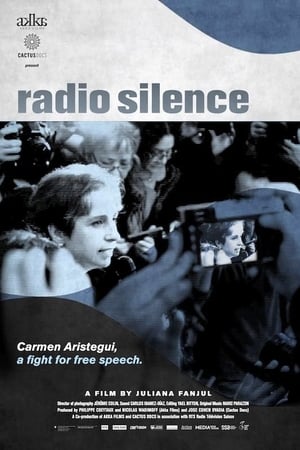 8.0
8.0Radio Silence(es)
Mexico, March 2015. Carmen Aristegui, incorruptible journalist, has been fired from the radio station where she has worked for years. Supported by more than 18 million listeners, Carmen continues her fight. Her goal: raising awareness and fighting against misinformation. The film tells the story of this quest: difficult and dangerous, but essential to the health of democracy. A story in which resistance becomes a form of survival.
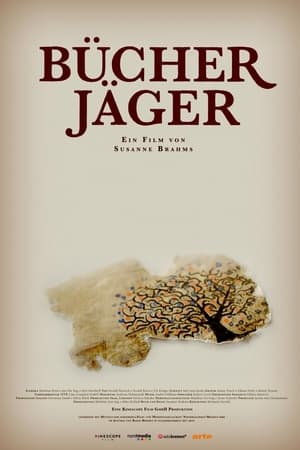 8.0
8.0Book Hunters(de)
When chaos reigns, while barbaric and fanatical rulers, both ecclesiastical and secular, systematically burn entire libraries, book hunters, secret heroes of history, travel the world saving and copying texts, threatened by the madness of censors, with the noble purpose of preventing the ultimate loss of human knowledge.
 6.8
6.8His Name Was Jason: 30 Years of Friday the 13th(en)
A retrospective documentary about the groundbreaking horror series, Friday the 13th, featuring interviews with cast and crew from the twelve films spanning 3 decades.
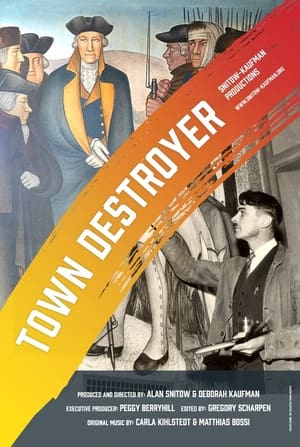 0.0
0.0Town Destroyer(en)
Controversy erupts over a New-Deal-era mural of the namesake of San Francisco’s George Washington High School. The thirteen-panel artwork "The Life of Washington" by Victor Arnautoff offers a view of the Founding Father both celebratory and critical, referencing his involvements in slavery and Native American genocide.
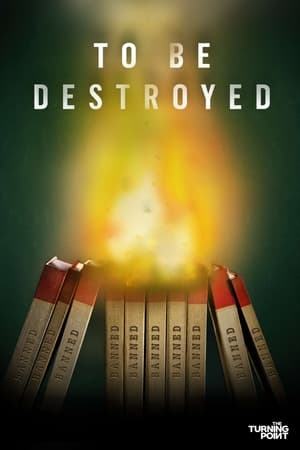 0.0
0.0To Be Destroyed(en)
A 30-minute documentary on book banning and censorship that follows author Dave Eggers as he investigates why a Rapid City, SD school board wanted to ban his book.
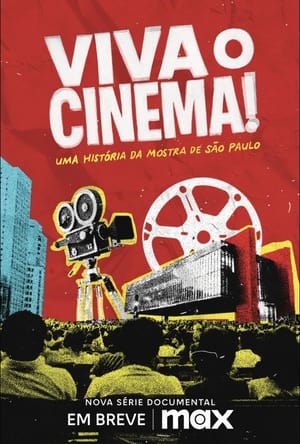 0.0
0.0Viva o Cinema! Uma História da Mostra de São Paulo(pt)
The series tells the story of the São Paulo International Film Festival, one of the most traditional cultural events in Latin America. For 48 years, the festival has showcased hundreds of films from all over the world, bringing vibrancy to the city. Filmmaker Marina Person provides an irreverent perspective, highlighting the exciting and unusual stories that have marked the festival’s journey of resistance. The series reveals the individuals who have embraced the challenge of organizing this significant cultural event in Brazil every year, despite often challenging conditions. We also delves into how the Mostra has grown to become one of the main festivals globally, shedding light on the changes in cinema, Brazil, and the world over the years.
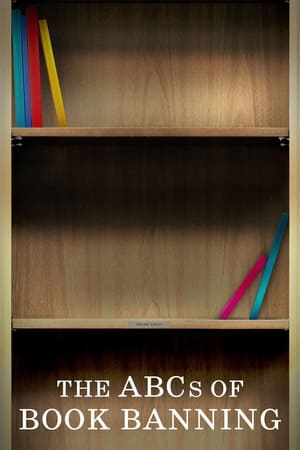 6.4
6.4The ABCs of Book Banning(en)
In recent years, more than 2,500 books have been removed from school districts around the US, labeled as banned, restricted, or challenged, and made unavailable to millions of students. By no accident, the themes targeted are the usual scapegoats of the American Right—LGBTQ+ issues, Black History, and women’s empowerment—impeding the power of future generations to develop their own thoughts and opinions on critical social issues. By weaving together a lyrical montage of young readers and authors, THE ABCs OF BOOK BANNING reveals the voices of the impacted parties, and inspires hope for the future through the profound insights of inquisitive youthful minds.
 0.0
0.0Uncensored Women(es)
The story of a group of actresses who, in the Spain of the seventies, and in the midst of the democratic Transition, decided to appear nude in the films of that time of radical political change, defying the rigid and deeply rooted social rules.
 6.6
6.6Cleanflix(en)
When a small Utah-based edited movie company is caught sanitizing Hollywood's copyrighted material, the film industry strikes back with a devastating blow.
Impressões do Brasil(pt)
"Impressões" rescues the history of the Brazilian press since 1808, when the "Correio Brasiliense" clandestinely reached Rio de Janeiro after being edited in London by Hipólito José da Costa, and spans until 1986. It's the first documentary to depict the history of the Brazilian journalistic press.
 0.0
0.0Obaida(en)
OBAIDA, a short film by Matthew Cassel, explores a Palestinian child’s experience of Israeli military arrest. Each year, some 700 Palestinian children undergo military detention in a system where ill-treatment is widespread and institutionalized. For these young detainees, few rights are guaranteed, even on paper. After release, the experience of detention continues to shape and mark former child prisoners’ path forward.
 6.5
6.5Forbidden Films(de)
Between 1933 and 1945 roughly 1200 films were made in Germany, of which 300 were banned by the Allied forces. Today, around 40 films, called "Vorbehaltsfilme", are locked away from the public with an uncertain future. Should they be re-released, destroyed, or continue to be neglected? Verbotene Filme takes a closer look at some of these forbidden films.
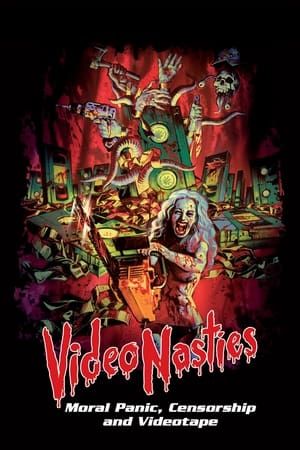 6.8
6.8Video Nasties: Moral Panic, Censorship & Videotape(en)
A documentary analyzing the furore which so-called "video nasties" caused in Britain during the 1980s.
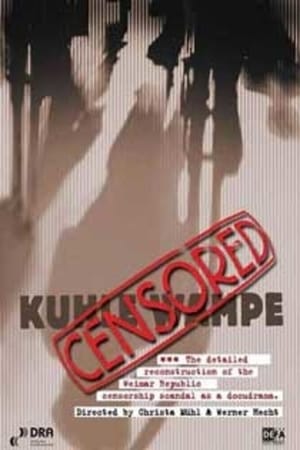 0.0
0.0Censored: Kuhle Wampe(de)
A detailed reconstruction of the censorship case against the landmark Weimar-era communist film, Kuhle Wampe, or Who Owns the World? (1932). Directed by Slatan Dudow, the crew and cast included left-wing luminaries, such as playwright Bertolt Brecht, composer Hanns Eisler and balladeer Ernst Busch. The film was the subject of vehement disputes and was banned twice for revolutionary and communist tendencies that were perceived to threaten the state. About 230 meters of the original film fell victim to the censor’s shears. This historic censorship case was argued over the course of three sessions. Censored: Kuhle Wampe re-enacts the censorship hearings, based on original minutes and documents, as well as personal records of the case. In addition to footage from the original film, this docudrama includes original clips of Berlin in the 1920s and '30s and short testimonies, filmed in the 1970s, with some of the actors involved in the original Kuhle Wampe film production.
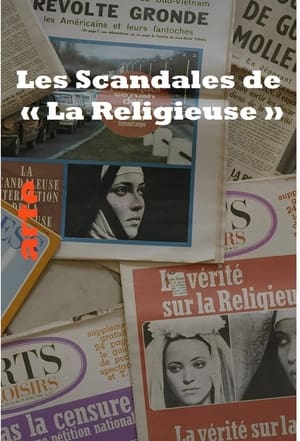 8.0
8.0Les Scandales de « La Religieuse »(fr)
Released in 1796 posthumously, The Nun, a novel that Diderot did not dream of publishing during his lifetime, as he knew it to be revolutionary, caused the same explosion in the 19th century France as in that of the 1960s, when Jacques Rivette decided to adapt it, with Anna Karina in the title role. “This film is banned and it will remain so!” said the General de Gaulle. Exploration of an indictment of incredible modernity which, through the tragedy of the young Suzanne, locked up in the convent against her will, denounces the inequity of a society denying women all moral, political and sexual freedom.
Censored!(en)
A documentary about the cultural effect of film censorship, focusing on the tumultuous times of the teens and early 1920s in America.


